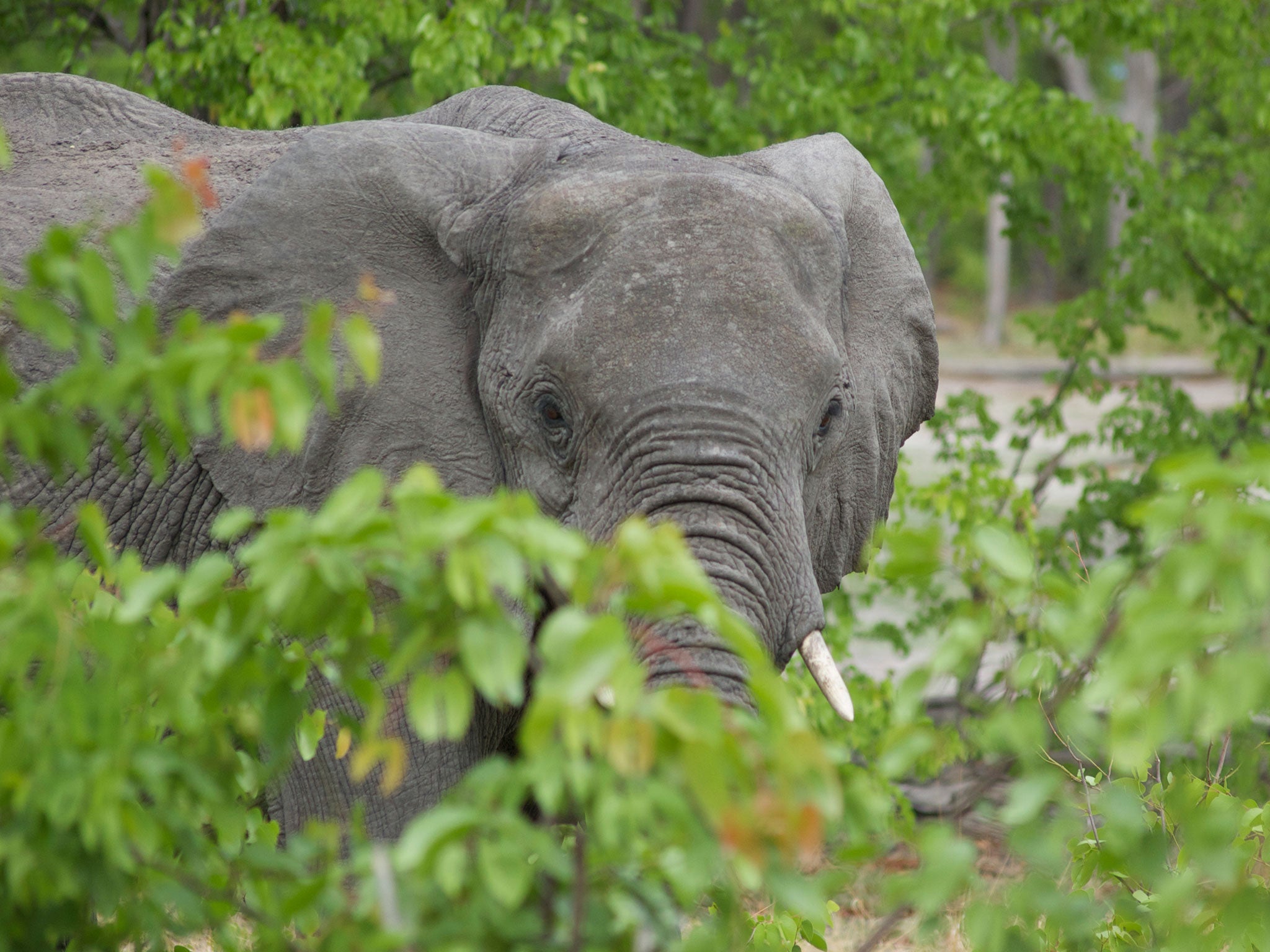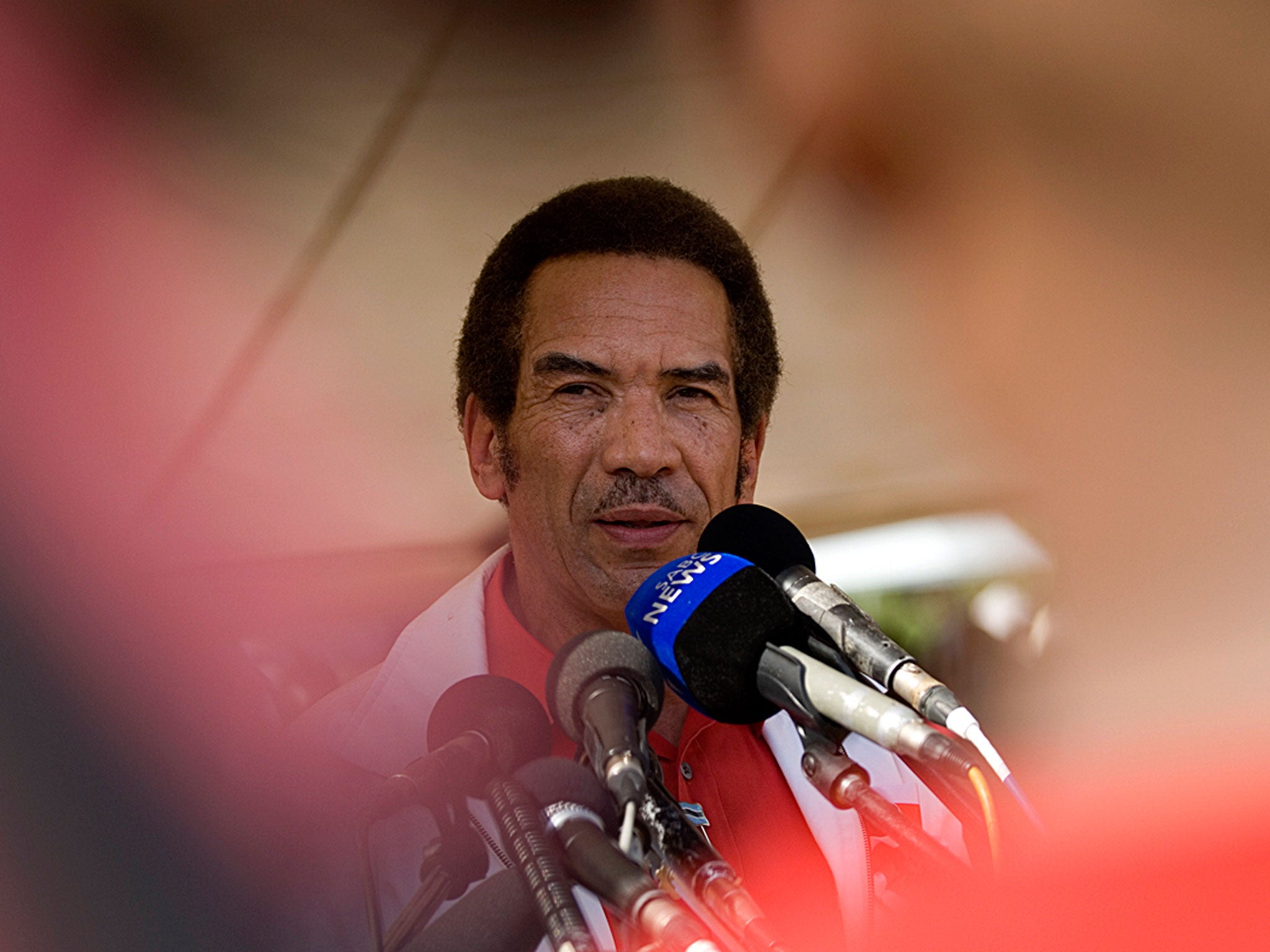Botswana Joins the Giants Club to fight the illegal ivory trade
Amid the slaughter of elephants in recent years, Botswana has shone as a rare bright spot

Your support helps us to tell the story
From reproductive rights to climate change to Big Tech, The Independent is on the ground when the story is developing. Whether it's investigating the financials of Elon Musk's pro-Trump PAC or producing our latest documentary, 'The A Word', which shines a light on the American women fighting for reproductive rights, we know how important it is to parse out the facts from the messaging.
At such a critical moment in US history, we need reporters on the ground. Your donation allows us to keep sending journalists to speak to both sides of the story.
The Independent is trusted by Americans across the entire political spectrum. And unlike many other quality news outlets, we choose not to lock Americans out of our reporting and analysis with paywalls. We believe quality journalism should be available to everyone, paid for by those who can afford it.
Your support makes all the difference.On one bank of the river Chobe, elephant carcasses can be found, lost to hunters and poachers. On the other bank, herds emerge from the surrounding floodplain each evening to drink and bathe in the river’s mud.
It is a stunning contrast, one that illustrates the state of one of the most iconic, and under threat, of African animals in the two countries whose border is defined by the waterway.
On the Namibian side, hunting is still allowed and, despite efforts by the country’s government, elephants are lost to those illegally seeking ivory. On the Botswana side, in the Linyanti Wildlife Area and the neighbouring 7,270sq mile Chobe national park, some 80,000 elephants roam free as their ancestors did across the African continent for millennia.
The rising price of ivory in Asia has led to a slaughter of elephants in recent years. In the Democratic Republic of the Congo, poachers used helicopters to shoot herds from the air. In Zimbabwe, waterholes were poisoned with cyanide. Throughout 2015, one elephant was killed on average every twenty minutes.

Amid this, Botswana has shone as a rare bright spot. Blessed by being the least corrupt country in Africa and with a small human population, Botswana is home to a population of around 200,000 savannah elephants, a third of all that remain in Africa. It is why this newspaper is delighted that Botswana, through its newly established endangered species trust, Tlhokomela, has signed a declaration to make it the fourth country to join The Giants Club, our initiative to combat the illegal ivory trade. It joins Kenya, Gabon and Uganda in its commitment to saving Africa’s elephant populations from extinction in the wild.
With The Giant’s Club implementation charity, Space for Giants, work is now underway to continue building the capacity of the wildlife department’s anti-poaching units and implement programmes to ensure human-wildlife coexistence in areas where elephants roam in traditional farmlands.
The Tlhokomela Trust is a private-public partnership, one established to benefit Botswana by protecting its precious wildlife. Its patron is the country’s President, Lieutenant General Seretse Khama Ian Khama, who has long been at the forefront of conservation, most recently by hosting the International Summit on the Illegal Wildlife Trade this summer. “One live elephant is worth so much more than all the pieces of art made from ivory gathering dust in homes far removed from the African plains,” the President stated. In this struggle, he has been aided by his brother, the Minister of Environment, Wildlife and Tourism, Tshekedi Khama. Under the minister, the country’s anti-poaching teams have been strengthened, community action empowered and new wildlife relocation projects introduced.
Celebrating the partnership between The Giants Club and Tlhokomela, Mr Khama said that “Tlhokomela means to look after and protect” but this comes at a “big cost” to the government.
“Some of our neighbouring countries do not attest to the same sort of level of protection to endangered wildlife species as we do,” he warned, “and as a result we have a tremendous migratory pattern of wildlife from neighbouring countries into this country.”
He continued: “As Botswana has been listed as a middle-income economy, our traditional donors have stopped donating or giving us assistance in wildlife protection, and this has obviously presented us with several challenges as to what we are able to do and the resources my ministry has.”
That is why he hopes international funders will now recognise that, in Botswana’s success in protecting its herds, there is ample evidence of why it deserves particular “assistance”.
Dr Max Graham, the founder of Space for Giants, said: “With the illegal wildlife trade becoming increasingly sophisticated, the spiralling cost of maintaining one of the last wildlife strongholds on the planet is becoming too much, even for a country as enterprising as Botswana. That is why we are determined to help Botswana secure its priceless wildlife heritage – not for today, not for tomorrow but forever.”
Join our commenting forum
Join thought-provoking conversations, follow other Independent readers and see their replies
Comments